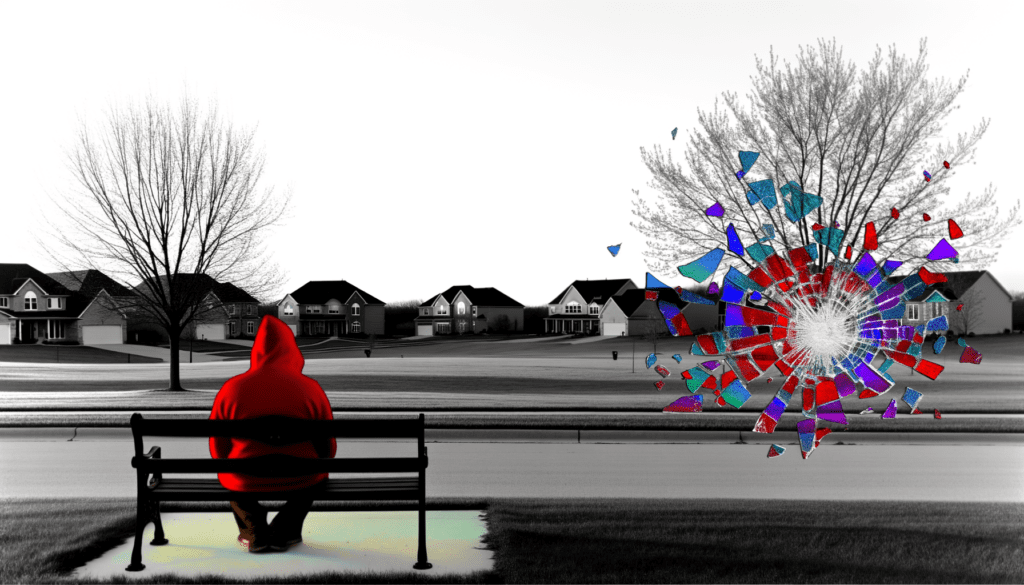It’s a heartbreaking tableau of modern America: weekend after weekend, headlines herald another wave of gun violence, leaving families shattered and communities grappling with grief. This past weekend was no exception, with shootings from Georgia to Wisconsin underscoring once again the urgent need for significant change in our nation’s policy and approach to gun violence.
Loss of Innocence in Wichita
Most chillingly tragic was the early morning shooting in Wichita, Kansas, which claimed the life of a seven-year-old child. Police found the youngster severely wounded from a gunshot injury to the upper body and pronounced him dead shortly upon arrival at the hospital. Wichita Police, desperate for answers, continue their investigation amidst the shadows of shock and grief enveloping this Kansas community.
The child’s death is not only a personal tragedy for his family but a dire reflection of America’s growing crisis around gun violence. The loss of such innocent life begs us to confront tough questions: What are we willing to do, collectively, to protect our children? Will it take a tragedy in every household before meaningful national action is compelled?
Shots Ring Out in Madison and Scranton
In the heartland city of Madison, Wisconsin, gunshots shattered the stillness of an early Sunday morning at the Harmony Apartments complex. One victim sustained injuries and was treated at a local hospital, fortunately, not fatally. Yet, the situation remains startling and unsettling for residents. Madison Police indicated that initial reports from the scene suggested a larger altercation or multiple shooters, rather than an isolated argument turning violent. Investigators are urging community members for clarity, seeking leads to piece together a coherent narrative.
Further east, Scranton, Pennsylvania experienced similar violence when gunfire erupted on North Main Avenue. One victim was hospitalized due to their injuries, but details about the severity remain unreleased. Authorities have identified a silver sedan fleeing the scene and are actively seeking the suspect vehicle. However, the absence of significant updates about suspects and victims’ conditions only amplifies communal anxiety. Scranton residents must grapple with uncertainty as the investigation drags onward.
Both incidents underline a harrowing reality that gun violence is not isolated to large metropolitan areas; rather, it has penetrated deeply into America’s suburbs and smaller urban centers, challenging the conservative narrative that these communities remain untainted by such crimes.
“The incessant toll of gun violence calls urgently for an unconditional look at how we legislate our communities’ safety.”
Georgia’s Rising Gun Violence Epidemic
In Effingham County, Georgia, authorities are wrestling with yet another deadly shooting. At a Parkers convenience store along Old Augusta Road, a victim was fatally shot in the head, another critically injured. Law enforcement remains uncertain where exactly the original shooting took place and fervently requests witnesses to step forward to unravel these violent circumstances.
Georgia experiences a disconcerting pattern, simultaneously fearing nature’s fury from severe storms and the societal tempest from gun violence, as Effingham County’s deadly incident starkly illustrates. With state authorities spread thin amidst crisis management, it becomes abundantly clear that broader community-driven strategies must join policing efforts in addressing gun violence culture.
Residents and local leaders are left advocating desperately for greater state and federal attention to this escalating crisis as communities tirelessly demand strategies aimed at prevention rather than reaction.
A National Crisis Demanding Progressive Solutions
These separate shootings, when viewed collectively, illustrate a critical reality: America faces a multifaceted crisis of gun violence stretching across cultural, geographic, and socioeconomic lines. Yet meaningful and sweeping national policy changes remain frustratingly elusive. For decades, conservative narratives have insisted upon the primacy of individual gun ownership rights at the expense of robust public safety measures. But this weekend’s tragedies emphasize precisely why this outdated approach is not sustainable nor protective of our collective security.
What progressives must advocate for, and communities across America so desperately need, is a comprehensive approach to reducing gun violence that includes background checks, red flag laws, and limits on high-capacity ammunition magazines. Moreover, investment must be made into community services and mental health resources, addressing the systemic issues fueling violence at the roots.
These enumeration strategies ethically respect individual freedoms while prioritizing communal well-being. Are these incidents not dire enough to inspire bipartisan conversations? When more innocents perish needlessly, then what remedy remains beyond preventive legislative and cultural transformations?
Our nation holds within its grasp the opportunity to reshape our destiny, to ensure fewer families face the agonizing reality of senseless loss and injury from gun violence. The path forward requires courage and unity, prioritizing human life over the illusionary sanctity of unrestricted firearms ownership. These recent tragic incidents must be commemorated with action—not the blank condolences that fade into cyclical silence and inertia.

